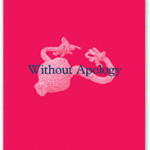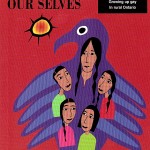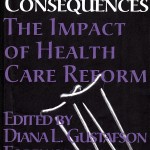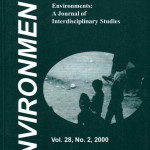These are a few pieces I’ve written over the years. I think of them as important steps in my writing career, for whatever reason.
Fiction
- Talbot Crescent, (M)Othering, Heidi Grogan and Anne Sorbie Eds., Inanna Publications, p. 154.
Don’t tell anyone, but this might be part of my next novel. It’s set in Windsor, ON in the 1970’s and the women on Talbot Crescent are going through some changes. It demonstrates the “problem that has no name” that Betty Friedan famously wrote about in The Feminine Mystique.
Disassembly, Writing Menopause, Inanna Publications, pp, 21-31.
This story is about a family that is disintegrating, their dog, labour unions, and menopause. I thought of it while reading one of those “man-goes-on-a-rampage” stories in the newspaper that are all too common. Every rampage has its origin story, every rampager has, or had, a family.
Nine Steps to Becky, Freshwater Pearls, Recliner Books, pp 107-114, 2011.
This story is about Barbies, alcoholism, suburban sprawl and regret. It is in a collection celebrating thirty years of writing at the Alexandra Writers Centre, an organization I belonged to while living and writing in Calgary. It is a non-profit organization dedicated to helping writers write. What could be better than that?
Weight, Freefall, Volume XX Number 2, Fall/Winter, pp 29-35, 2010.
This story was a finalist for the Howard O’Hagan Short Fiction Award, presented by the Alberta Writers Guild. It was a genuine honour to be nominated, let alone be a finalist for this prize. The prize that year was won by Rudy Wiebe, a wonderful Alberta writer, and I am still amazed that I was on the same list. The story is very Canadian, about a woman driving from Northern Ontario to Toronto, and while on the road, she hits a deer. It is about birth, death, and of course, regret.
Creative Non Fiction
“Lost,” Impact: Women Writing After Concussion, University of Alberta Press, pp. 5-19.
This is my own contribution to the anthology edited by E. D. Morin and I. This was an incredibly difficult piece to write. I wrote it while severely brain injured, about 15 minutes at a time. It makes me cry to read it. Seriously. But if you really want to know what writing this book was like, listen to my interview with Shelagh Rogers on The Next Chapter with Kinnie Starr, another contributor to Impact.
“On Mountains and Menopause,” with E. D. Morin, Writing Menopause, Inanna Publications, pp. 113-117.
One of the many things E.D. and I have in common is our love of the alpine and the mountains. E.D. is a real climber. Me, I’m just a hobbyist. But together we talked about one of the great challenges for women climbing and mountaineering – blood – and mused about whether menopause was a reason that so many women start climbing later in their lives. This is our conversation.
“Something As Big As A Mountain,” PRISM International, 50.3, 2012.
This piece was runner up for PRISM International’s Creative Non Fiction Prize in 2012. It is about my experience mountaineering near Mount Tsar in a remote part of the Rockies north of Golden, BC. I undertook this trip without fully understanding how difficult it would be or why I was doing it. So often, the things we are driven to do, the things we cannot quite explain, the things our mothers will never understand, reveal their meaning to us in their own time.
Non Fiction
Here are a few non fiction works that I wrote as I transitioned from an academic life to a writing life:
“Same As It Ever Was: Anti-Choice Extremism and the Third Way” in Without Apology: Writings About Abortion in Canada, Shannon Stettner, Ed. 2016. Athabasca University Press.
I think of this as the last thing I will write on abortion, but never say never. It felt like the culmination of decades of thought. I wrote it in 2012 or 2013 in response to a call for submissions. I had been thinking a great deal about how the anti-choice folk were taking over the language of the left, the language of social justice and human rights, and twisting it to suit their purposes. This was an awful piece to write on so many levels. The research depressed me. The peer review process was incredibly demanding, but also very good for me. It forced me to make the piece better and better. The good part of this project was working with Shannon Stettner, who is a wonderful editor. This book is available for free with a downloadable PDF from the Press.
The Tories’ maternal health initiative is the mother of bad policy. Globe and Mail, April 28, 2010, p. A15.
I’ve been involved in the reproductive rights movement for decades and also taught Women’s Health when I was a Women’s Studies Instructor at Mount Royal College (now a University) in Calgary, Alberta. I had a particular interest in this policy. Unfortunately, all efforts to change the mind of this particularly intransigent and right leaning government failed.
The Diagnosis that Changed My Life, Globe and Mail, Facts and Arguments, January 8, 2010
It’s not that I was exactly sorry when this was printed, (after all, I’m the one who sent it out) but I wasn’t entirely pleased either. Of all the things I’ve written, this probably got the largest response. It was gut wrenching to write so personally. The bad part was that the Globe and Mail changed the title. I had never wanted it to be just another cancer narrative. But that is how it was taken up. It was originally called “The Next Minute,” as in, you’re sitting in the doctor’s office ticked off because you’re running late and you’re wondering about the work on your desk and what to have for dinner and on and on and then the next minute, your life is completely changed. As Joan Didion says, “Life changes in the instant.” Forever. It happens all the time. This essay is about one of those times. I was also testing out what it felt like to lay my personal life out on a national stage. I think it was a good lesson. You never know how readers are going to read something. People read into a piece what they want it to say, and that is not always the same as the writer’s intention. People seem to want the battle and bravery narrative of cancer. I find it loathsome. I’ve written another essay on this topic that was short listed for the PRISM International creative non-fiction prize in 2007, but remains unpublished.
Happily, this piece was published again in Waiting: An Anthology of Essays. It went back to it’s original title, “The Next Minute,” and it’s original context. I thank Rona Altrows and Julie Sedivy for accepting the piece and giving it a second life.
What do Education Funding, Barbara Bush and McDonalds have in Common? Our Schools/Our Selves, Vol. 12, No. 4, Summer 2003, pp. 77-80.
I was furious when I wrote this. Absolutely furious. It shows.
Obscuring a Crisis: The Obstetricians’ and Gynecologists’ Job Action and Maternal Care in Alberta, in Care and Consequences: The Impact of Health Care Reform, Diana L. Gustafson Ed. 2000. Halifax: Fernwood. pp. 107-126.
Diana Gustafson is a wonderful editor and I was delighted to contribute to this book about health care reform. This article is about a job action undertaken by the province’s obstetricians and gynecologists and the impact this had on pregnant women at the time. Research introduced me to the province’s midwives, which was an eye opening and thoroughly rewarding experience.
Assessing New Reproductive and Genetic Technology as If Children Mattered. Canadian Bioethics Newsletter, Vol. 5, No. 2, August 2000
A follow up piece to my Master’s project. I try to look at public policy issues as though women and children matter, actually matter, not just in words but in fact. When I do that, it is amazing how different policy looks.
Risky Business: Rethinking the Social and Ecological Impact of Biotechnology. Environments: A Journal of Interdisciplinary Studies. University of Waterloo. Vol. 28, No. 2, 2000. pp. 63-73.
Dr. Margrit Eichler ran a wonderfully wide-ranging seminar in Special Topics in Sociology of Education at the Ontario Institute for Studies in Education and each member of our class contributed an article to this issue of Environments. Dr. Eichler is an excellent teacher. Of the many things she taught me, I will share two here. When my Master’s project was finished, but I was still tinkering with it, Margrit told me, “Writing is never finished. You decide when you are done. A good sign is when you become bored with it.” Words to live by. She also said to me, “You don’t have to be in school to write.”
“Shuffle”. You Look Good for Your Age: An Anthology. Rona Altrows, Ed. University of Alberta Press.
I’m fortunate to be part of two of Rona’s anthologies—Waiting and You Look Good For Your Age. This video clip is from my piece, “Shuffle.” Enjoy my pandemic hair.




